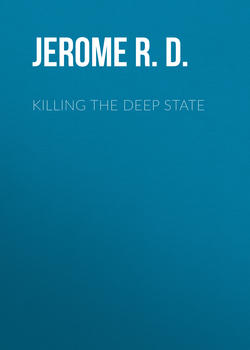Читать книгу Killing the Deep State - Jerome R. Corsi. Ph.D. - Страница 13
На сайте Литреса книга снята с продажи.
Andrew Weissmann and Sally Yates
ОглавлениеAn email obtained by Judicial Watch through a Freedom of Information Act (FOIA) request shows that on the night of January 30, 2017, former DOJ prosecutor Andrew Weissmann sent an email to former acting attorney general Sally Yates with the subject line, “I am so proud of you.” In the three-sentence body of the email, Weissmann said, “And in awe. Thank you so much. All my deepest respects.”24
The background of the memo was that President Trump had just fired Yates after an escalating crisis in which Yates, who had served as deputy attorney general under President Obama, had refused to carry out President Trump’s executive order that the political left was interpreting to be a travel ban against Muslims.25 Tom Fitton of Judicial Watch said the email was “an astonishing and disturbing find.” Weissmann had just taken a leave with the DOJ to serve as a top prosecutor on Mueller’s special counsel team. Since 2015, Weissmann had headed DOJ’s criminal fraud division. “Andrew Weissmann, a key prosecutor on Robert Mueller’s team, praised Obama DOJ holdover Sally Yates after she lawlessly thwarted President Trump,” Fitton said. “How much more evidence do we need that the Mueller operation has been irredeemably compromised by anti-Trump partisans?”26
As a prosecutor, Weissmann has a reputation for being fast and loose with the rules in his zeal to obtain convictions. Sidney Powell—a former US attorney whose 2014 book Licensed to Lie: Exposing Corruption in the Department of Justice is a shocking exposé of prosecutorial impropriety that she maintains runs rampant today among Department of Justice prosecutors—warns that Andrew Weissmann, a federal prosecutor who is now part of Mueller’s team, is capable of extorting guilty pleas. Powell points to the example of former Arthur Anderson partner David Duncan, who withdrew his guilty plea in the Enron case after Weissmann extorted him to testify for the government to obtain the wrongful conviction of Arthur Anderson. Noting that Weissmann was the “driving force” behind the indictment of Arthur Anderson in the Enron case, Weissmann used the “special tactics” he developed prosecuting organized criminals, convinced that even if some of his special tactics went outside the bounds, the ends justified the means when prosecuting serious bad guys. Later in the book, Powell points out that Weissmann forced Duncan into a guilty plea by misrepresenting Duncan’s innocent conduct in the case as “criminal.”27
